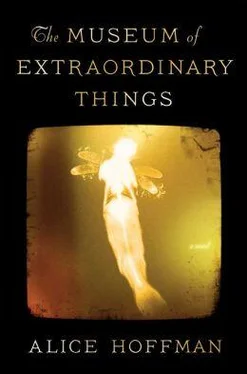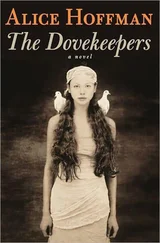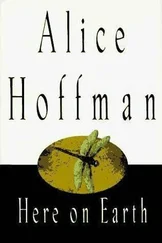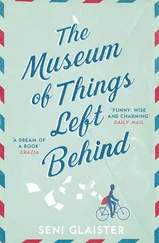Other men from our village who had also escaped the pogroms of the wild Russian horsemen soon befriended my father. In our homeland we called a village a shtetl, and each one was a world unto its own. The men, brothers. The women, sisters. Our brothers took pity on us and helped us find better living quarters, where we might, once again, be on our own. Farther down Ludlow Street we found a kind of salvation. A single room, but ours. My father had a bed, and I slept on the floor atop the feather quilt we had brought with us, sewn by hand by my mother. It was the only thing of any worth that we owned.
Every morning we recited the same prayers, swaying back and forth in meditation. We dressed in black coats and black hats. We were Orthodox in our practices and beliefs, as our grandfathers and great-grandfathers had been. In the Ukraine I would have been a scholar, but in New York I followed my father to work, as I followed him in all things. His name was Joseph Cohen, known in our village as Yoysef, and he took pride even in the lowliest tasks, as if he were still a scholar reading God’s commands. If he’d had a wife and daughters, they would have been employed, and, like many other Orthodox men, he would have spent twelve hours a day in study and prayer, but that was not meant to be. In the factory I sat on the floor watching his nimble fingers turn rolls of fabric into dresses and coats. In this way I learned the tailor’s trade. I was proud to bring my father needles and spools of thread. Other men murmured they wished they had a son as smart as I was, as promising and as studious. I was a worker from the time I was eight years old, and I had a gift for creating well-made clothes out of plain cloth. That was the way my fate unfolded. And yet, despite the harshness of our lives, I did not question my faith. I still carried a prayer book in my coat pocket.
We knew we were lucky to have employment. Bands of day laborers waited for work in Seward Park on the corner of Hester and Essex; when we passed by we shook our heads and said they were like pigs at the market. I was alongside my father and his friends when the bosses came unexpectedly to the factory one day and fired everyone without warning. This was the day my life changed, when I lost my soul, or found it, depending on what you believe. As garment workers, we had no rights, but at least we earned enough to survive, until the bosses decided otherwise. They’d brought in new workers, cheaper labor, men just arrived from Russia and Italy who would toil eighteen hours a day for pennies and never complain when they were locked into workrooms to ensure they didn’t take time to eat or drink or even to rest for a few moments. These newly arrived men asked for even less then we did, and the Jews, desperate for the pennies we would earn, agreed to be at their sewing machines on Saturdays, the holy day for our people, when as Orthodox Jews we could not work. It seemed we were no longer needed, and no objections would be tolerated. Men who looked like gangsters stood at the door; should anyone dare to complain, they wouldn’t hesitate to beat down the agitators. On that afternoon some of those who had been dismissed went home and cried, some looked for work, but my father went to the river.
I was tall for my age, as quiet as I was studious. My life was in the shul and in the factory, but on the day we were let go I followed my father to the docks of Chelsea, and because of this I became someone else. Something inside me grew hardened, or was it that something inside me was freed, a bird that flew from its cage? I trailed after my father, though he told me to hurry back to Ludlow Street. The docks were crowded with men in black coats, some who were clearly of our faith, friends of my father’s, but opposing them were a gang of thugs cut from the rough cloth of the docks, men who carried brass knuckles and were good and ready for a fight. I could think only of keeping up with my father. When he noticed me, he shouted that I must go home. I ducked behind some barrels, hoping he’d assume I’d done as I was told. That was when it happened. My father seemed to leap all at once, like a strange unwieldy bird he rose into the air and flew away from the pier. There was the slapping sound of flesh into water that I still hear.
Dockworkers nearby were unloading a ship of its cargo, huge steel beams, each of which took a dozen men to handle. When they heard the splash they all came running. My father floated, his heavy coat spilling out around him like a black water lily. I feared this was to be our last good-bye, and I would now be on my own. I sprinted back to the dock, sweating and in a panic. My feet were on the railing and I was about to jump in to rescue him. I didn’t know how to swim, but that was not the reason I did not leap in. It had often seemed possible that he might take his life when we wandered through the forest. Once I had discovered him with his belt made of rope looped in his hands. He was staring into the branches of a tree filled with black birds. I grabbed his arm and told him there was a path only yards away, and then, as we wandered forward, I found it.
We had come this far together, and I was stunned that he was now willing to leave me behind in this world of grief. But hadn’t he been looking for a way to rejoin my mother? Wasn’t his love for her more compelling than his concern for me? Now the cage had opened; the bird had flown. In that instant, my responsibility to my father vanished. It was then I decided the person I would save was myself. I owed nothing to my father, nor to anyone else in this world.
The dockworkers pulled my father from the river and wrapped woolen blankets around him, but I walked away. That night, when my father came home, he acted as if nothing had happened, and so did I.
But it had.
After that I avoided people in our neighborhood. I no longer considered myself Orthodox, and I left my hat under the bed whenever I went out alone. I was drawn to the river, and began fishing. I went farther and farther on my expeditions, away from the harbor where blue crabs ate the bait off my line and the fish tasted of petroleum. The very act of angling calmed me and allowed me to think. I studied what other men did and thereby learned where to search for night crawlers and how to spy a run of shad in the darkening waters. I went ever farther uptown, looking for solitary places, and finding them.
In those days I was walking through a dream rather than living my life. I had become someone else, but who was that someone? The watcher at prayer meetings, the false son who sat in silence at our meager dinner table, the boy who had failed to rescue his father. He had finally found employment again, sewing women’s blouses, and I worked beside him once more. Here the conditions were even worse than in the first factory. We were not allowed to speak or open any of the windows, most of which were nailed shut. There were no fire escapes where we might sit and catch a breeze from the west. In the summer it was sweltering; in winter we wore gloves with the fingers cut off so that we might still sew. Rats ran inside the walls, and I sometimes put my ear up so I could hear them. The truth is, I envied them their freedom, and longed to be among them, darting into the alleys, living out of sight, doing as they pleased.
There were several other boys there, and I was befriended by one, Isaac Rosenfeld. We did the pressing of finished clothes with gas-fueled irons, in which a flame burned so hotly we needed to take care to ensure that we didn’t burn ourselves or drop sparks onto the piles of lace and muslin spread around. We shared whatever food we had—an apple or some raisins that we stole from the pushcarts on the streets when no one was looking. We did not speak much, but we usually worked side by side. When the supervisor walked through, Isaac always made an obscene gesture behind his back and we had a few laughs. We shared our contempt for the rich and well fed, and that bound us together.
Читать дальше













